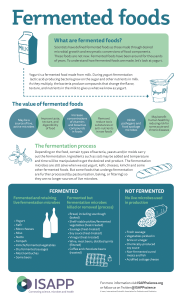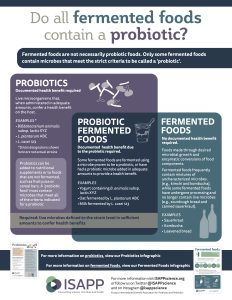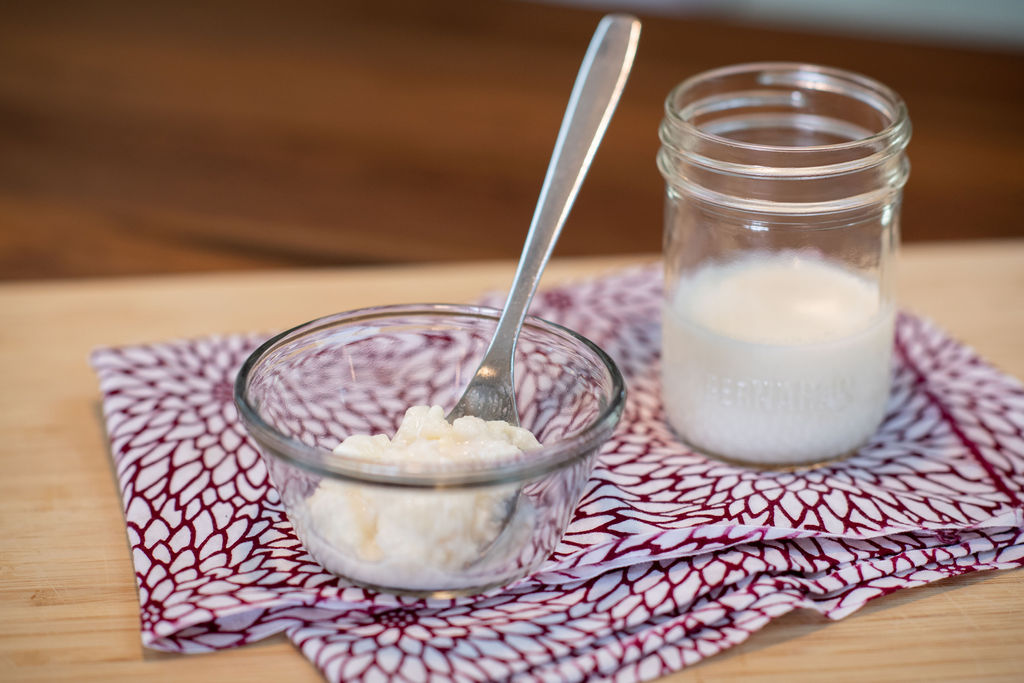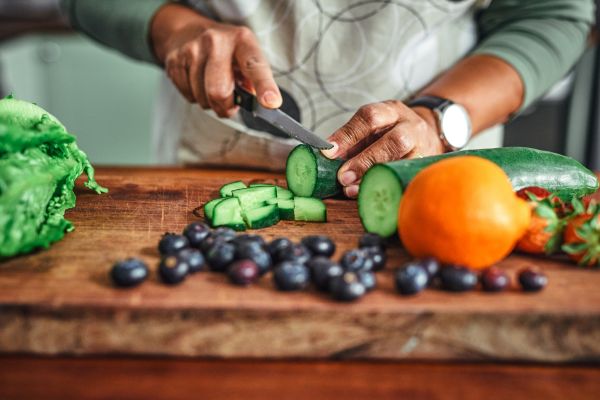Fermented Foods
Not all fermented foods contain probiotics.
Not all fermented foods contain probiotics.
Fermented foods are foods made using desirable microorganisms that change the properties of the food components. Throughout human history, fermentation has served as a way to preserve and transform foods, creating more stable and diverse foods with unique tastes and textures.
All fermented foods require microbes for their creation, but not all fermented foods contain live microorganisms at the time of consumption. When they do, the number of microorganisms can vary significantly depending on how products were manufactured and processed, as well as conditions and duration of storage. Fermented foods are generally safe to eat because the fermentation process typically keeps harmful microorganisms at bay.
Few microorganisms in fermented foods meet the criteria for probiotics because they have not been specifically named and tested for health benefits. Instead, microorganisms in fermented foods typically fall under the category of live dietary microbes.














